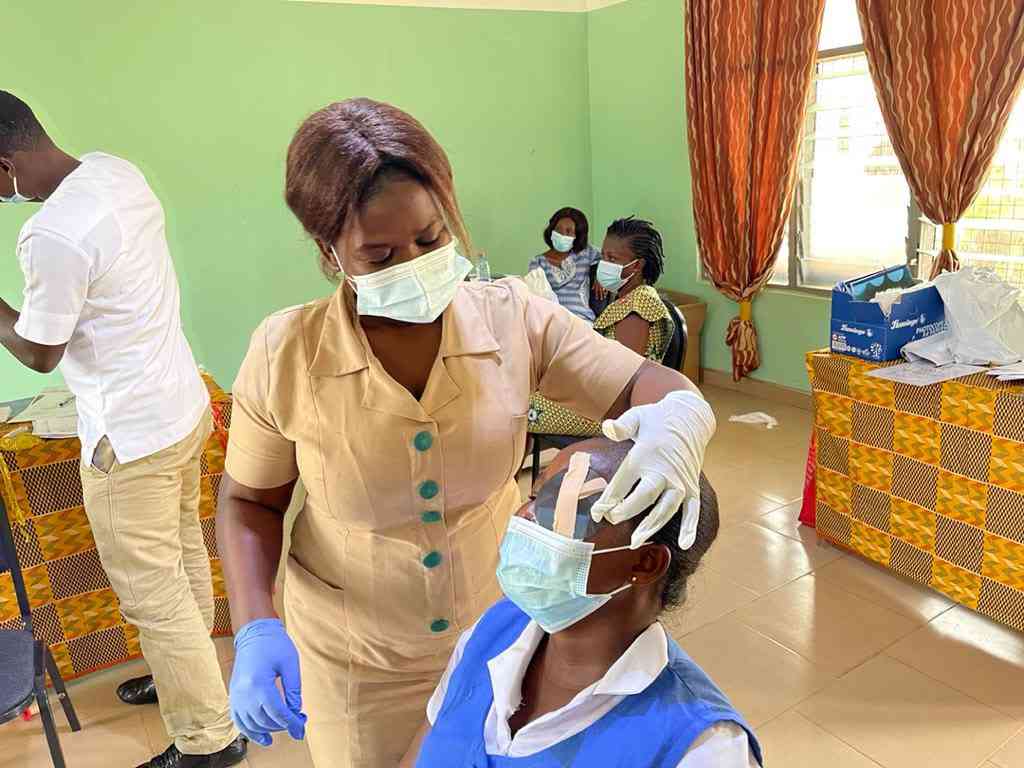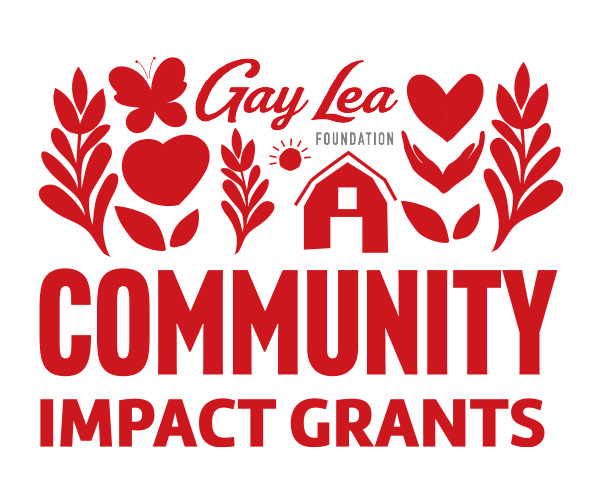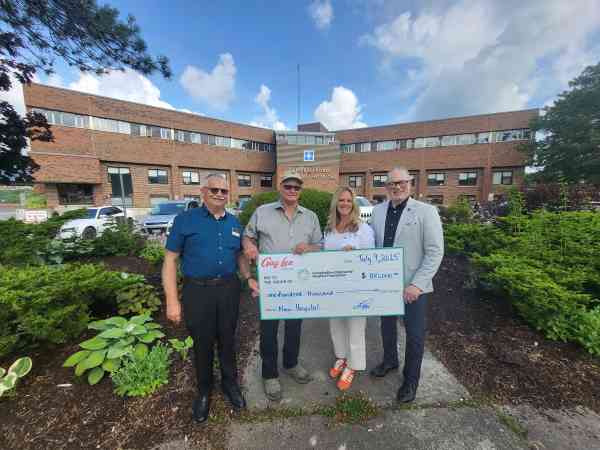Mar 29, 2022
Imagine losing your sight in one of the poorest regions in the world. Where would you turn for help? With very few skilled eye doctors or quality medical centres, your chances of receiving the right kind of care are minimal. As your sight gets worse, your chances of getting an education, earning a steady income, or caring for your family evaporate.
This is the reality facing millions of people around the world today. Globally, there are 338 million people who are blind or living with moderate-to-severe visual impairment. Of these, a huge 77% of cases are completely preventable or treatable.
For nearly 40 years, Project Orbis International has been a global leader and innovator in the fight to end avoidable blindness. Working with a network of local partners, including hospitals, universities, ministries of health, community organizations and like-minded NGOs, they focus not only on giving people their sight back now, but on empowering eye care teams in low- and middle-income countries with the knowledge, skills, and resources they need to provide the best eye care possible to their communities.
Project Background
In late 2020, the Gay Lea Foundation granted $25,077 to Orbis Canada to support the organization’s efforts to increase access to high-quality primary eye care, eye health education and advanced treatment referral services at the community level in the Sekyere South District of Ghana.
Affected by high rates of poverty, limited access to basic medical services, and a severe shortage of properly trained eye care workers, the district had the highest burden of eye disease in the entire Ashanti Region, with visual impairment and blindness accounting for 45% of all known disability cases. Compounding the problem, limited community awareness about eye disease and eye health meant that many people’s eye conditions were going undiagnosed, misdiagnosed, or mistreated.
Building on the success of their work in four other districts of the Ashanti Region, the project supported by the Gay Lea Foundation would see the Orbis team reach out to local health system administrators in Sekyere South District with the goals of integrating primary eye care services into existing health care service delivery structures, training community-based health care workers to increase their capacity to deliver primary eye care services, and increasing community awareness about eye disease, proper eye health, and the importance of seeking care to prevent vision loss.
Project Update

A CHW practices applying an eye bandage to another CHW acting as a patient.
In February 2022, a final report from Orbis Canada indicated that, thanks to the generous support of the Gay Lea Foundation, the Integration of Community Eye Care in Ashanti Region, Ghana project was a resounding success.
Despite the challenges created by the COVID-19 pandemic, the Orbis team was able to engage with local health administrators from the Ghana Heath Service and Ashanti Regional Health Directorate, who committed to making eye care a priority healthcare service for families in Sekyere South District. The meetings provided a platform for the joint review of the health system and its information and delivery systems, resulting in an investment by the Ghana Heath Service in further training and professional development for a Health Manager, Health Information Officer and two administrative staff members to ensure quality data will be available to support decision-making on eye care.
To build the capacity of community-based health care workers, Orbis and its partners facilitated two three-day primary eye care training sessions for 46 local community health workers (CHWs). They also provided additional training and skills development for an ophthalmic nurse and an optometrist from the local government hospital, and purchased essential equipment and supplies for the hospital, including antibacterial and anti-allergy eye medications, antibiotics, eye ointments and eye drops used to treat a wide range of the most common eye conditions.
Since completing this training, the CHWs have played a key role in screening more than 25,000 community members, including over 6,000 school children in 2021. In total, nearly 800 children and 700 adults were referred for further examination and treatment for a variety of eye conditions ranging from minor eye infections requiring antibiotics, to severe cataracts or trauma-related eye injuries requiring surgery.
The equipment and medications are being used by eye care workers for hospital-based services, as well as community- and school-based eye screening outreach programs.
To help encourage positive health seeking behaviour among community members and increase community awareness about proper eye care, common eye diseases and the critical importance of seeking care from a trained medical professional, the newly trained CHWs also participated in or supported 258 health promotion and community education activities in 2021, reaching more than 7,000 people across the district. Orbis reports that the focus on educating community members has already translated to improved positive health-seeking behaviour, with many community health care clinics, as well as the local hospital, reporting a significant increase in the number of new patients seeking eye care services during the project period.
Overall, Orbis reports, the participation of local health care workers and engagement of local partners was integral to the design and purpose of the project and led to the achievement of the project’s main goal to improve eye health in Sekyere South District.
“This intervention has come at the right time to provide a much-needed relief on the eye health system in the region, said Ashanti Regional Ophthalmologist for the Ghana Health Service, Dr. Kwadwo Amoah. “It has made eye care more accessible to community members on the primary level while reducing pressure on the secondary level facilities. It has really boosted our capacity in the region and at the same time highlighted additional areas that needs to be developed and improved.”

Nov 3, 2025
Gay Lea Foods Co-operative Limited (“Gay Lea Foods”) today announced it has received the PRISM Certified designation from Imagine Canada, recognizing the Canadian dairy co-operative’s commitment to...

Oct 21, 2025
As co-operatives recognize Co-op Week and the United Nations’ International Year of Co-operatives, the Gay Lea Foundation is proud to announce the recipients of its fall 2025 charitable grants.

Jun 2, 2025
Spring 2025 grants announced to support health, agriculture, and community well-being projects across Canada and internationally

Feb 12, 2025
The Gay Lea Foundation today announced applications are now open for its Community Impact Grants program, supporting initiatives in education, health, wellness, poverty relief and sustainable agriculture...